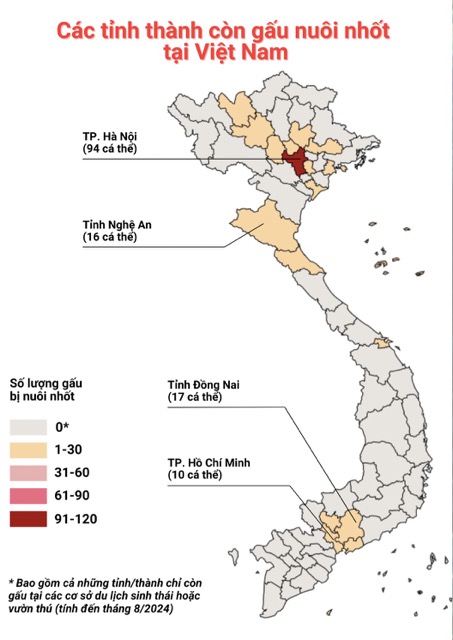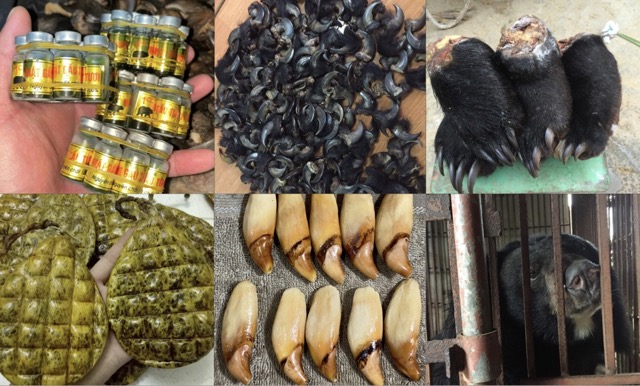On October 22, the Education for Nature (ENV) Center organized the event "Ending bear farming in Vietnam - The journey is nearing the finish line", looking back on nearly 20 years of efforts to end bear bile farming in Vietnam.
In 2005, Vietnam had about 4,000 bears in captivity. Almost all of these bears were of illegal origin; they were hunted and traded when they were still cubs.
According to the report, after nearly 20 years of efforts, the number of bears in captivity in Vietnam has decreased by 95%. From 4,000 individuals in 2005 to 192 individuals by the end of August 2024. Currently, 46/63 provinces and cities no longer have bears kept in captivity for bile extraction.
The Forest Protection Department and Forest Protection Branches of provinces and cities across the country play an important role in gradually eliminating bear bile farming through registration, microchipping, regular monitoring of captive bears, and ensuring effective enforcement of laws on bear protection.
Ms. Bui Thi Ha - Deputy Director of ENV - said: Thanks to the persistent efforts of agencies and units over the past 19 years, typically Lam Dong province, where many households keep bears in captivity, has been successful in convincing bear owners to transfer.
Hanoi is also the locality with the largest number of captive bears in the country, accounting for about 49% of the total number of bears, but up to now, Hanoi only has about 94 captive bears, concentrated in Phuc Tho district.

To thoroughly implement the goal of ending bear captivity, local authorities need to increase inspection, supervision and strictly handle violations related to bears.
“ENV believes that, with high determination, all provinces and cities will succeed in ending this situation,” Ms. Ha affirmed.
The event is not only a memorable milestone in the journey to protect bears, but also a strong call to authorities and the community about the importance of wildlife conservation in Vietnam.
In 2005, the Ministry of Agriculture and Rural Development (MARD) and World Animal Protection (WAP) launched a major campaign after discovering more than 4,000 bears in captivity.

Starting with the issuance of Decision 02/2005/QD-BNN requiring all captive bears to be microchipped for identification and tracking purposes. By 2006, the registration and microchipping of bears had been completed.
In addition to WAP, the campaign to end bear bile farming has also received active participation from other organizations such as the Education for Nature (ENV), Animals Asia Foundation (AAF), Four Paws and Free The Bears.

In partnership with bear rescue, these organizations support law enforcement agencies in handling bear crimes, reducing demand for bear bile, and encouraging bear owners to voluntarily surrender their bears to rescue centers.










